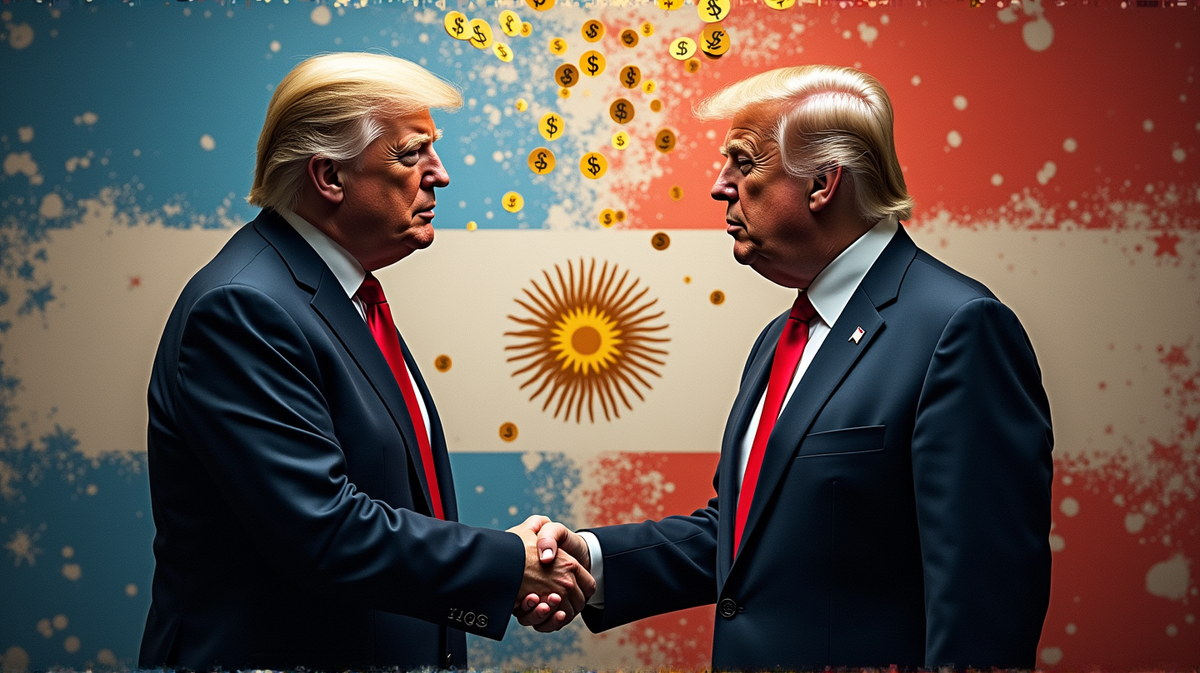Trump's $20 Billion Argentine Gamble: A Political Ploy or Economic Necessity?
Discover why Trump's $20 billion financial aid to Argentina is sparking debates and raising eyebrows on its true intentions.

In a dramatic turn of events, the Trump administration has extended a $20 billion financial lifeline to Argentina amidst its ongoing economic turmoil. This significant gesture sparks major questions about the motivations and implications behind this controversial deal, according to PBS.
Two Currencies, One Problem
Argentina is no stranger to crises, thanks to its unusual dual-currency system where both Argentine Pesos and U.S. Dollars circulate. The volatility in this currency mix often leaves the country scrambling for dollars to stabilize its economy. The recent aid from the U.S. aims to alleviate the current crisis by bolstering the peso, yet the underlying issue remains unresolved.
Political Strings Attached
Donald Trump, in his candid style, linked the aid to the electoral success of Argentine President Javier Milei’s party. As Trump underscored during a White House meeting, this financial support hinges on Milei’s political victory, leaving many to wonder about the entangled political interests at play.
Geopolitical Motivations Unveiled
Though Argentina might not significantly impact global economics, its strategic resources like lithium and rare earth reserves make it an intriguing geopolitical arena. The U.S. is keen to counter China’s growing influence in the region, which adds another layer of intrigue to this financial intervention.
Farmers’ Dilemma and Trade Wars
As the U.S. bolsters Argentina’s economy, American farmers express frustration. China’s pivot to Argentine soybeans amidst the U.S.-China trade war highlights a bittersweet reality for U.S. agricultural producers. The lifeline thrown to a competitor feeds into the broader complexity of international trade dynamics.
The Risks of Aiding Argentina
Economist Monica de Bolle warns of potential pitfalls, reminiscent of past International Monetary Fund interventions. The fear lingers that the U.S. might find itself in a cycle of continuous aid with uncertain outcomes, risking both financial and reputational costs.
Conclusion
This bold maneuver by the Trump administration intertwines economic aid with intricate political and geopolitical factors. As global eyes watch on, questions abound on whether this move will truly benefit Argentina’s ailing economy or primarily serve other vested interests. One thing is clear - the stakes are high, and only time will unravel the full impact of this ambitious lifeline.